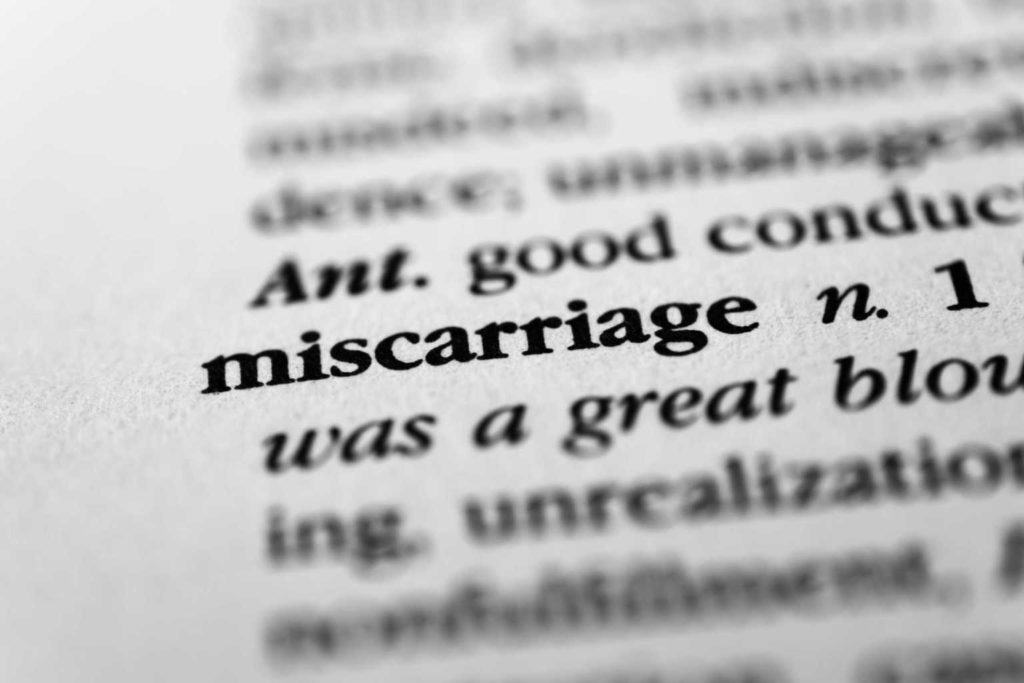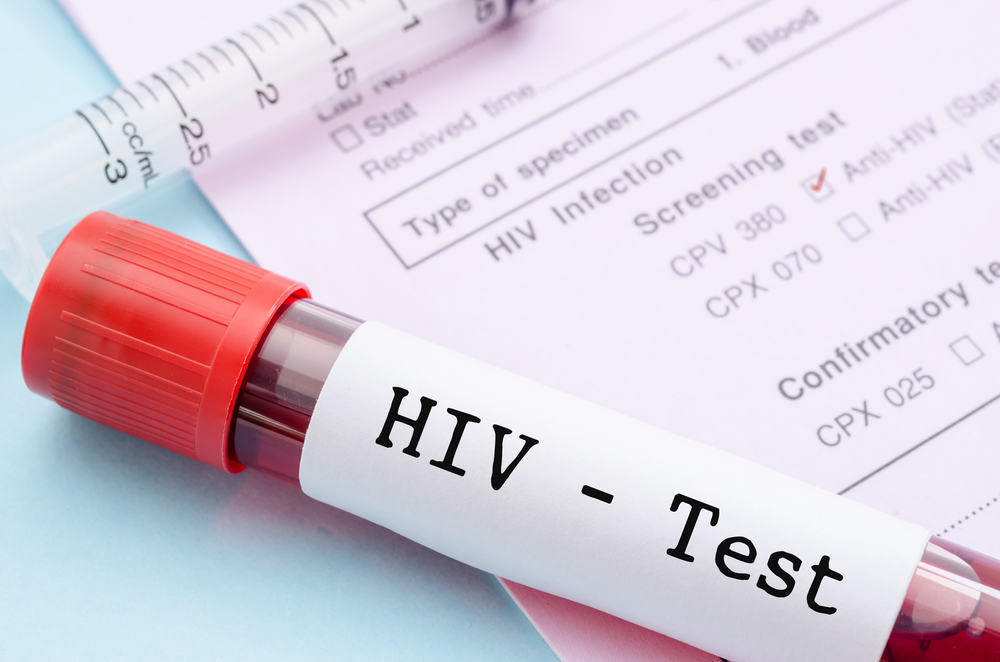Contents:
- Medical Video: Understanding Early Pregnancy Loss
- How common are repeated miscarriages?
- What are the causes of recurrent miscarriages?
- What are the tests and treatments that need to be done?
- Test
- Ultrasound Scan (USG)
- How likely are you to have a healthy baby?
Medical Video: Understanding Early Pregnancy Loss
If you experience a miscarriage more than 3 times in a row, the doctor calls it a recurrent miscarriage or repeated miscarriages. If you experience recurrent miscarriageyour doctor or midwife will refer you to a gynecologist, who will identify the cause of the miscarriage.
Having a miscarriage repeatedly can make you feel hopeless. Sometimes, it will be difficult to have hope to get a baby.
Try to strengthen yourself with the fact that most women who experience recurrent miscarriages eventually have a baby. Especially if your test results do not indicate the reason for the miscarriage. 6 out of 10 women who have had a miscarriage 3 times have had a baby in the next pregnancy.
How common are repeated miscarriages?
About 1 in 100 women experience recurrent miscarriages. Often, in some women, it is not known why repeated miscarriages occur. About half of recurrent miscarriages are unknown.
However, several causes of miscarriages that occur repeatedly can be identified.
What are the causes of recurrent miscarriages?
If you have experienced a miscarriage repeatedly, one question you need the answer is: "Why did this happen?". Although there is no cause, there is still a chance for a successful pregnancy in the future.
Some health conditions are known to be the cause of miscarriages. Usually the condition that causes recurrent miscarriage is a condition that is not common, such as:
- Antiphospholipid syndrome (APS) or syndrome sticky blood or Hughes syndrome which causes improper blood clotting. APS is found in 15% -20% of recurrent miscarriages.
- Decreased blood clotting disorders or thrombophilia. Thrombophilia is similar to APS, but thrombophilia is owned from birth. Blood is easier to freeze and can cause recurrent miscarriages.
- Genetic problems. You or your partner may have a chromosome abnormality that does not cause problems, until it is passed down to your baby. Chromosomal abnormalities are often associated with recurrent miscarriages in as many as 2% -5% of partners.
- Problems with the uterus (uterus) or pelvis. You may have a weak uterine or pelvic shape. Bacterial vaginosis or infection in the vagina can increase the risk of miscarriage and premature birth.
- Problems with hormones. Some conditions, such as polycystic ovaries are associated with recurrent miscarriages. But it is still not known why this is related to miscarriage and how it works.
Age can have an effect on miscarriage. The older you are, the more likely you are to have a miscarriage. Father's age can also increase the risk of miscarriage.
The sad fact is: any miscarriage can increase the risk of subsequent miscarriages.
At the age of 35 years and over, the number and quality of the egg begins to decline rapidly. This can make genetic material in the egg not suitable at fertilization. Chromosomal abnormalities in infants occur more easily, increasing the chance of miscarriage.
Of all possible causes, there are cases that have no reason. This is called unexplained recurrent miscarriage aka unexplained repeated miscarriages. But as the cause of recurrent miscarriages is found, cases unexplained recurrent miscarriage can go down.
What are the tests and treatments that need to be done?
If you experience a miscarriage more than 3 times, the doctor will ask a gynecologist who will examine the cause of your recurring miscarriage.
Test
You may get a blood test for APS examination or syndrome sticky blood. The test will see antibodies for the condition. Antibodies are chemicals that the body produces to fight infection. 2 tests are needed, with a distance of 6 weeks, to see if you have an APS or not.
If you have an APS, you will still have the opportunity to succeed in getting pregnant, with the right treatment. If you become pregnant again, your doctor will give blood thinning drugs such as aspirin and heparin to treat APS.
You and your partner can undergo a blood test for examination of chromosomal abnormalities or karyotyping. If abnormalities are found, you and your partner should see a genetic specialist for counseling.
The counselor can explain the disorder and the chance you have a healthy pregnancy.
Sometimes, the test results do not provide answers. If your doctor can't find the cause of a miscarriage, you can see it as an opportunity at another time, if you want to keep trying. You can also feel disappointed because there is no explanation and become frustrated if there is nothing else you can try.
Doctors can offer other tests if you experience other miscarriages. With your agreement, check for a failed pregnancy network or post mortem can be done. This test can see problems on the chromosome.
Tissues from the placenta can also be tested to see signs of problems. If an abnormality is found, the more likely the next pregnancy is successful, due to the usual abnormality one-off.
Ultrasound Scan (USG)
The doctor will offer ultrasound scan (USG) to examine your uterus. Scan can show abnormalities that inhibit pregnancy. Depending on the abnormality, it is still possible for you to have a successful pregnancy. For example, some abnormalities can be corrected by surgery.
If you have the possibility of pelvic weakness, you will be offered to do scan again in the next pregnancy.
It will be difficult for your doctor to check pelvic weakness if you are not pregnant. The doctor can predict this condition if in the next pregnancy, your tubal breaks early, or the pelvis opens without pain.
In the next pregnancy, minor surgery can be done to sew your pelvis. This can help you from other miscarriages. There are pros and cons of this procedure, which will be explained by the doctor.
Abnormalities of the uterus and weakness of the pelvis are rare conditions.
How likely are you to have a healthy baby?
If your miscarriage does not have a definite cause, you have a good chance of having a successful pregnancy. You will be treated very carefully and given extra care at the beginning of your pregnancy.
A special team will take care of you in the Early Pregnancy Assessment Unit (EPAU) around you. Care and intensive support can increase the chance of a successful pregnancy. About ¾ women who experience unexplained recurrent losses, in the end will have a healthy baby, with the right support and care.
If you or your partner has a chromosome problem that causes a miscarriage, it's hard to predict the chance of having a healthy baby. Some conditions don't decrease every time you conceive. Each partner has a different condition and you will do counseling with a specialist in genetic disorders.
Some, but not all, conditions that cause recurrent miscarriages can be cured. Nothing can guarantee the chance of a successful pregnancy. However, a gynecologist can take into account medical history, age, and test results when discussing the chances of success in your pregnancy.
It will be very difficult if you feel very hurt by the loss you feel. Support can really help you. Tell your closest friends and family, and your doctor about your feelings.
Hello Health Group does not provide medical advice, diagnosis or treatment.












